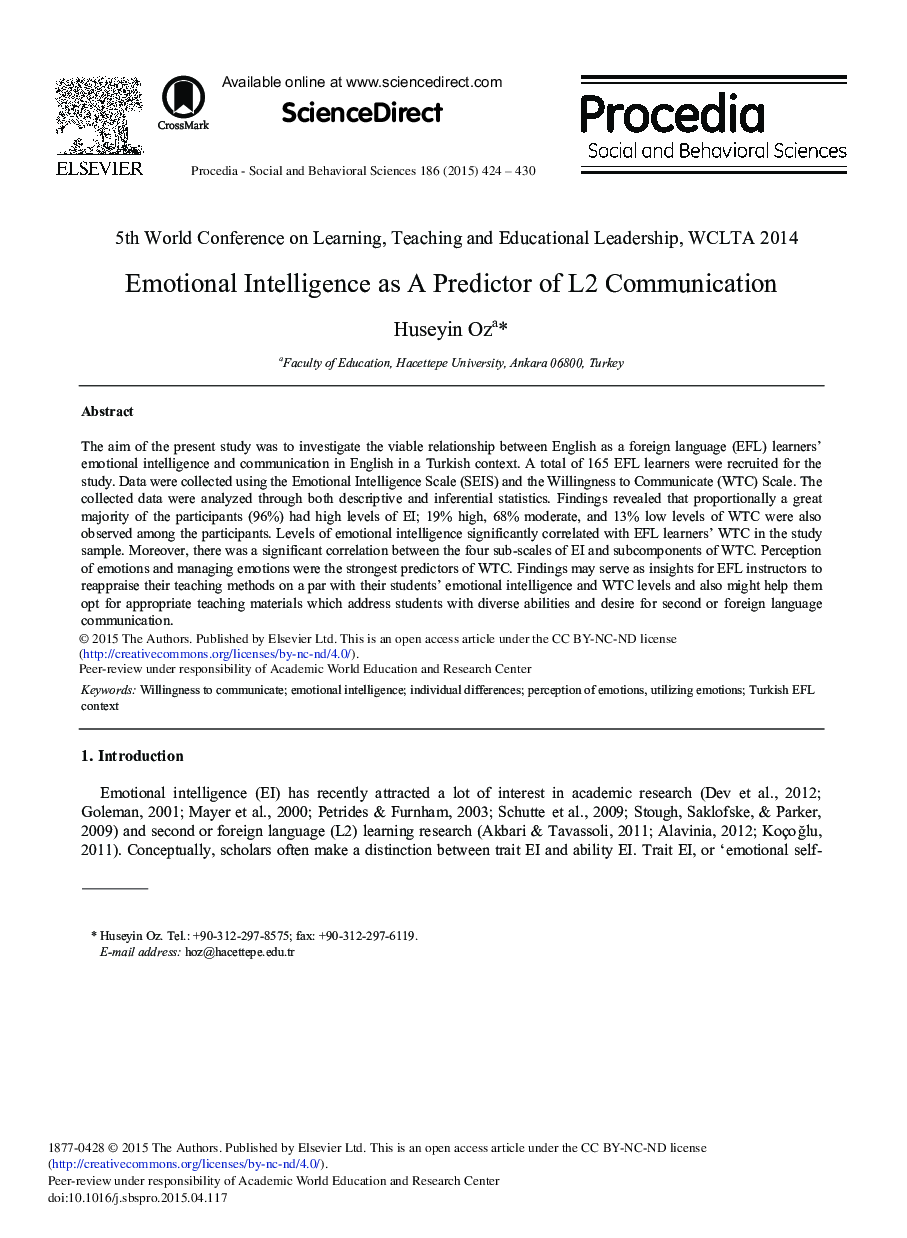| Article ID | Journal | Published Year | Pages | File Type |
|---|---|---|---|---|
| 1110481 | Procedia - Social and Behavioral Sciences | 2015 | 7 Pages |
The aim of the present study was to investigate the viable relationship between English as a foreign language (EFL) learners’ emotional intelligence and communication in English in a Turkish context. A total of 165 EFL learners were recruited for the study. Data were collected using the Emotional Intelligence Scale (SEIS) and the Willingness to Communicate (WTC) Scale. The collected data were analyzed through both descriptive and inferential statistics. Findings revealed that proportionally a great majority of the participants (96%) had high levels of EI; 19% high, 68% moderate, and 13% low levels of WTC were also observed among the participants. Levels of emotional intelligence significantly correlated with EFL learners’ WTC in the study sample. Moreover, there was a significant correlation between the four sub-scales of EI and subcomponents of WTC. Perception of emotions and managing emotions were the strongest predictors of WTC. Findings may serve as insights for EFL instructors to reappraise their teaching methods on a par with their students’ emotional intelligence and WTC levels and also might help them opt for appropriate teaching materials which address students with diverse abilities and desire for second or foreign language communication.
